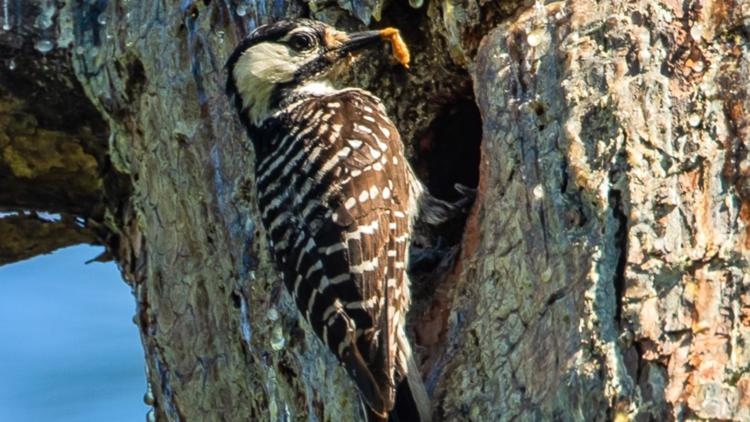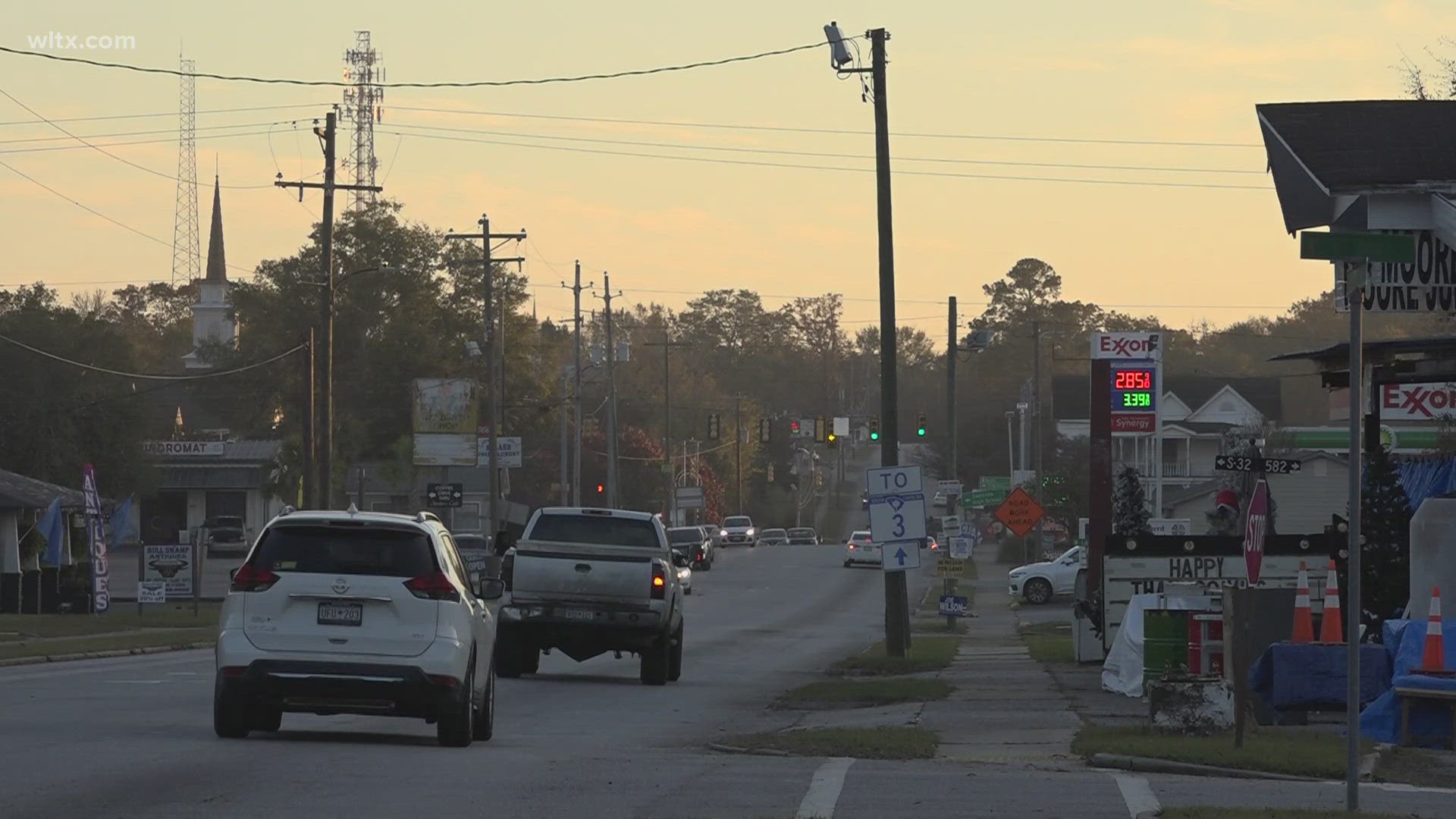COLUMBIA, S.C. — In a landmark moment for wildlife conservation, the red-cockaded woodpecker has been officially downgraded from endangered to threatened under the Endangered Species Act.
The U.S. Fish and Wildlife Service (USFWS) announced the decision, which takes effect today, following decades of intensive conservation efforts across the southeastern United States.
“This is a remarkable conservation milestone,” said Emily Cope, deputy director of the S.C. Department of Natural Resources (SCDNR). “While this is a moment of progress, it also serves as a reminder that nature’s recovery is a shared responsibility. The future of the red-cockaded woodpecker—and the ecosystem it represents—is brighter today thanks to the efforts of those who never gave up.”
A Species Tied to Unique Habitats
The red-cockaded woodpecker, distinguished by its habit of carving cavities in living pine trees, is emblematic of mature southeastern pine forests. These birds rely on the open, park-like pine ecosystems historically maintained by natural wildfires. Such habitats once spanned an estimated 90 million acres across the Southeast but were drastically reduced by settlement-era logging and land conversion.
By the time the species was listed as endangered in 1970, fewer than 10,000 individuals remained. Since then, collaborative conservation programs have worked to stabilize and rebuild red-cockaded woodpecker populations through habitat restoration and active management.
Public and Private Collaboration
Among the many initiatives contributing to this success is South Carolina’s RCW Safe Harbor Program, launched by SCDNR in 1998. The program incentivizes private landowners to improve red-cockaded woodpecker habitats on their properties, offering protection from land-use restrictions if new birds settle as a result.
Currently, nearly 200 landowners manage over 360,000 acres of habitat, supporting roughly 500 woodpecker family groups. In addition to private efforts, public lands in South Carolina host 118 active clusters of red-cockaded woodpeckers, with ongoing efforts to expand populations.
The USFWS has emphasized that the new “threatened” status will still provide robust protections for the species while easing regulatory barriers for land management practices that enhance its habitat.
A Conservation Legacy
The downlisting of the red-cockaded woodpecker marks a significant step forward, but experts caution that the species’ recovery remains an ongoing effort. Maintaining and expanding the unique pine ecosystems that these birds depend on will be critical to ensuring their long-term survival.
“This achievement underscores the power of partnership and persistence,” said Cope. “It’s a victory for the species, the landscape, and everyone who has worked to restore this incredible bird.”
For more information on red-cockaded woodpeckers and South Carolina’s Safe Harbor Program, visit SCDNR’s website. Details on the federal rule change can be found on the Federal Register.
4o



